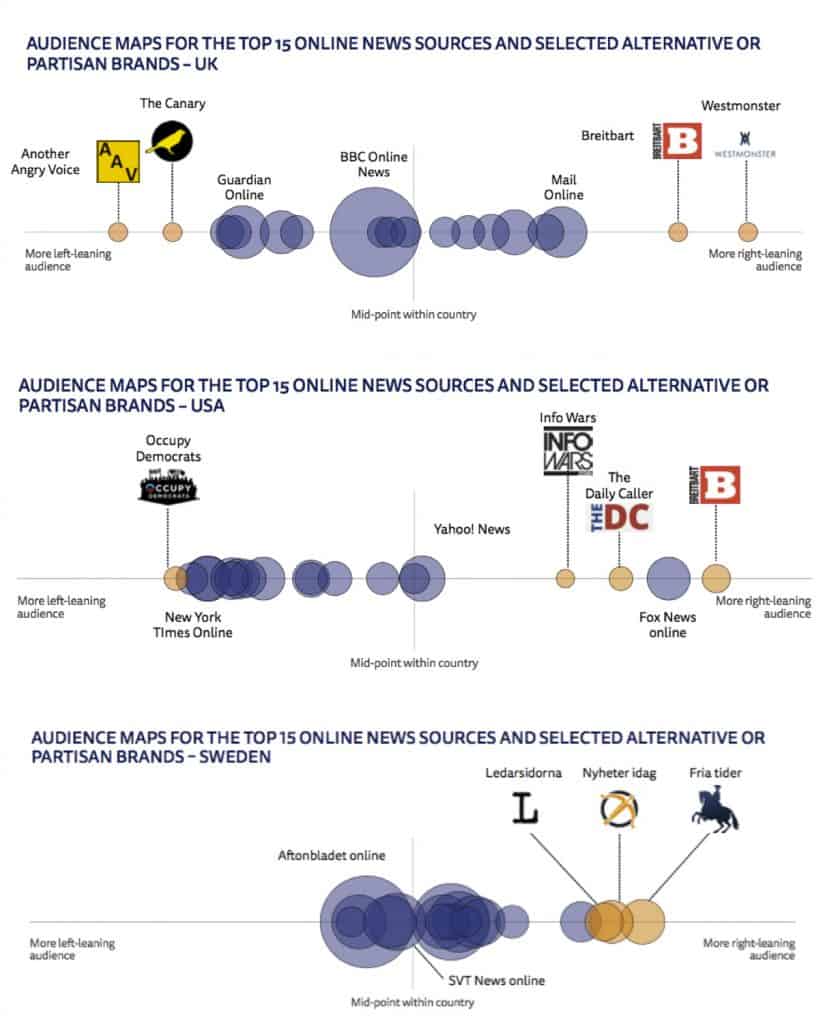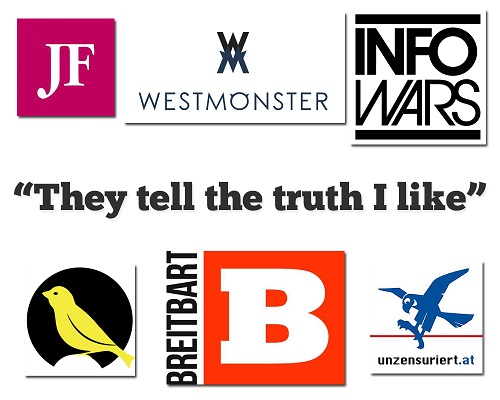British journalist Nic Newman analyzed a study conducted as part of the Reuters Institute’s Digital News Report 2018 on information sites in Europe that have or support a political agenda and an explicit ideological position.

Last June the European Journalism Observatory (EJO) published an analysis by British journalist Nic Newman, They tell the truth I like – Partisan And Alternative News Sites in Europe – on the alternative and partisan press in Europe, starting from a comparison with the US experience. The analysis is part of the Digital News Report 2018 of the Reuters Institute for the Study of Journalism, which for 2018 focused on information through new media.
The work takes into consideration sites that have an ideological position and a strong starting point, but that do not necessarily produce false or manipulated news, like online media relying on social media for dissemination.
These include the American but with European versions Breitbart , the British The Canary and Evolve Politics , Another Angry Voice , the German Junge Freiheit and Politically Incorrect News, the Austrian Unzensuriert (Uncensored) and the Czech Parlamentnilisty.cz .
The work, carried out through a survey in 10 European countries (including Germany, Poland, the United Kingdom, Spain, Austria, the Czech Republic and Sweden), highlights how the influence of this type of media is stronger in the U.S. than in Europe: in the U.S, they are mainly related to the various right-wing and alt-right galaxies, while in Europe the ideological positions are slightly nuanced. Users of these sites have in common the lack of trust in mainstream information, to which this galaxy of sites presents itself as an alternative.
Why we like it
By combining the information from the survey with the political ideas of the respondents and the frequency with which users visit the different websites, the survey is able to track their ideological profile.
If the classic right-left division holds for most of the subjects dealt with, things get more blurry on issues concerning immigration: these issues, in addition to bringing together a wide audience, are often, as in the case of some countries of Central and Eastern Europe, influenced by governments populist discourse. The analysis also shows that the readers of the mainstream media are quite close to the centre of the political spectrum.


